Abstract
Due to the limited qubit number of quantum devices, distributed quantum computing is considered a promising pathway to overcome this constraint. In this paradigm, multiple quantum processors are interconnected to form a cohesive computational network, and the most natural set of free operations is local operations and classical communication (LOCC). However, designing a practical LOCC protocol for a particular task has been a tough problem. In this work, we propose a general and flexible framework called dynamic LOCCNet (DLOCCNet) to simulate and design LOCC protocols. We demonstrate its effectiveness in two key applications: entanglement distillation and distributed state discrimination. The protocols designed by DLOCCNet, in contrast to conventional ones, can solve larger-sized problems with reduced training time, making the framework a practical and scalable tool for current quantum devices. This work advances our understanding of the capabilities and limitations of LOCC while providing a powerful methodology for protocol design.
Publication
arXiv:2509.07841
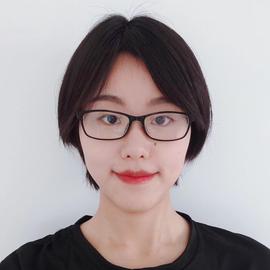
Research Associate
I obtained my B.S. in Mathematics from the Qingdao University. I obtained my doctoral degree in Cyberspace Security from University of Chinese Academy of Sciences. My research interests include quantum machine learning and quantum computing.
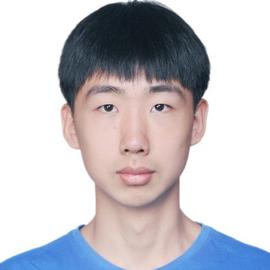
PhD Student (co, 2025)
I obtained my BS in Mathematics and Applied Mathematics from Jilin University under the supervision of Prof. Sen Zhu. I obtained my MS degree in Applied Mathematics from Zhejiang University under the supervision of Prof. Junde Wu. My research interests include quantum information theory, quantum computation and computational complexity.
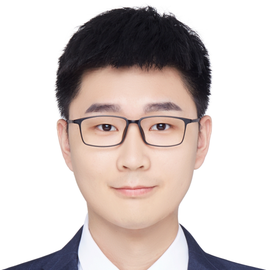
Visiting Scholar
I obtained my MS degree in Physics from Imperial College London. I was an intern at Baidu Research under the supervision of Prof. Xin Wang. I obtained my PhD degree in quantum information at Osaka University. My research interests include quantum error mitigation, quantum information theory and quantum computation.
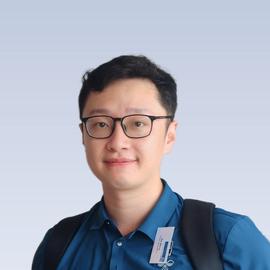
Associate Professor
Prof. Xin Wang founded the QuAIR lab at HKUST(Guangzhou) in June 2023. His research primarily focuses on better understanding the limits of information processing with quantum systems and the power of quantum artificial intelligence. Prior to establishing the QuAIR lab, Prof. Wang was a Staff Researcher at the Institute for Quantum Computing at Baidu Research, where he concentrated on quantum computing research and the development of the Baidu Quantum Platform. Notably, he spearheaded the development of Paddle Quantum, a Python library designed for quantum machine learning. From 2018 to 2019, Prof. Wang held the position of Hartree Postdoctoral Fellow at the Joint Center for Quantum Information and Computer Science (QuICS) at the University of Maryland, College Park. He earned his doctorate in quantum information from the University of Technology Sydney in 2018, under the guidance of Prof. Runyao Duan and Prof. Andreas Winter. In 2014, Prof. Wang obtained his B.S. in mathematics (with Wu Yuzhang Honor) from Sichuan University.
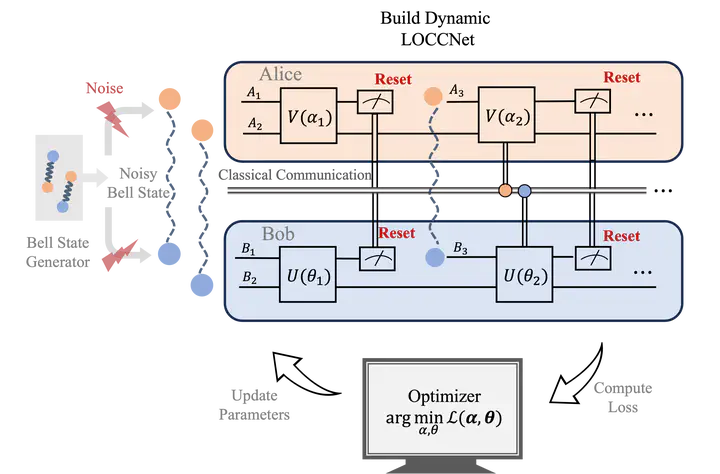 Optimizing an LOCC protocol with dynamic LOCCNet.
Optimizing an LOCC protocol with dynamic LOCCNet.